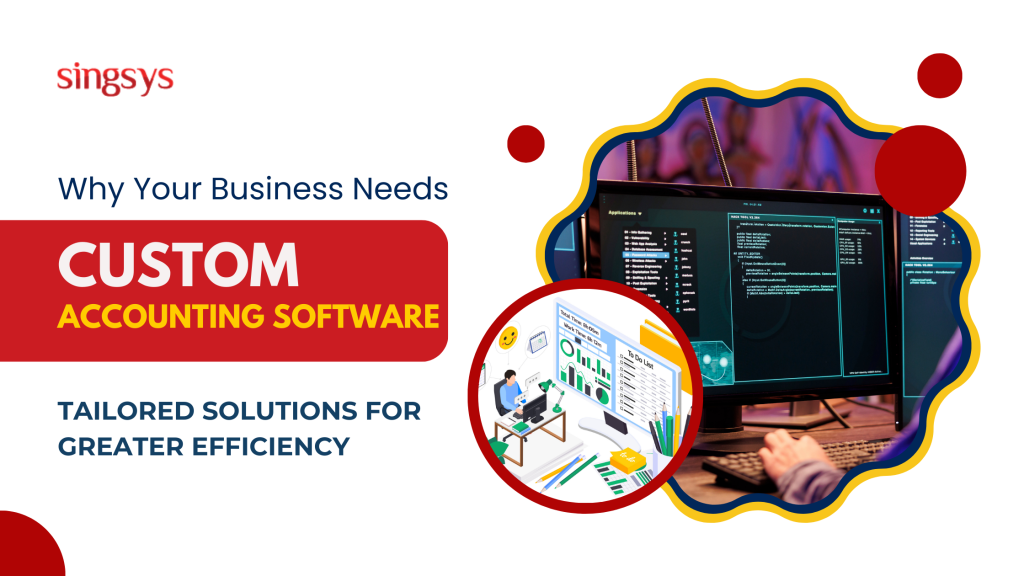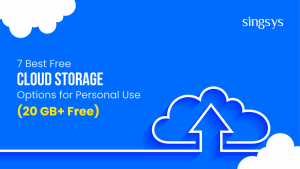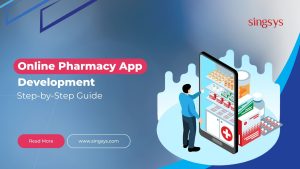Shift-Left vs Shift-Right Testing: What Actually Works in Production
Software quality is not something that testers have to think about at the end of development anymore. It is something that everyone has to think about all the time when […]

The custom accounting software market is projected to grow significantly, with an estimated value of around USD 15.74 billion by 2031, up from USD 10 billion in 2023, reflecting a compound annual growth rate (CAGR) of 6.69%. This growth underscores the increasing demand for tailored accounting solutions, driven by the evolving needs of businesses for greater efficiency and flexibility.
In today’s competitive business environment, efficient accounting practices are crucial for survival and growth. Accounting isn’t just about numbers; it’s the backbone of effective decision-making and financial health. However, many businesses find themselves constrained by the limitations of generic accounting software, which often lacks the flexibility needed to accommodate specific requirements.
This is where custom accounting software comes in—a tailored solution designed to meet the unique needs of your business. By offering a more adaptive, secure, and scalable alternative, it can help improve efficiency and provide a significant competitive edge.
This is designed to fit your business like a glove. Unlike generic software that offers a one-size-fits-all approach, custom solutions can be tailored to your specific accounting processes, workflows, and reporting requirements. This customisation level ensures you have the tools you need to manage your finances effectively.
One of the most significant advantages of accounting software is the boost in efficiency it brings. Tailored software streamlines workflows and reduces manual tasks, allowing your accounting team to focus on more strategic activities. Repetitive processes, such as invoicing, payroll, and financial reporting, can be automated to ensure faster and more accurate results. Automation also improves data accuracy and consistency, reducing the risk of human error that can have costly implications.
Data security is a top priority in the digital age, especially when it comes to financial information. It offers robust data protection measures that can be specifically designed to address your business’s security concerns. With custom software, you control who has access to sensitive information, and it can be built to comply with industry regulations relevant to your sector. This means greater peace of mind when it comes to protecting your financial data.
A significant limitation of generic accounting software is its inability to scale with your business. On the other hand, is designed with growth in mind. As your business evolves, the software can be adapted to accommodate new processes, features, and integrations, ensuring that it remains a valuable asset over time. It also integrates seamlessly with other systems, such as customer relationship management (CRM) and enterprise resource planning (ERP) solutions, improving overall workflow and efficiency.
It is provides real-time insights and analytics, offering a clear view of your business’s financial health at any given moment. Accurate financial reporting enables data-driven decision-making, allowing stakeholders to respond quickly to changes in the market or financial landscape. This real-time access to information is crucial for strategic planning and ensuring your business remains competitive.
While the upfront investment in it may seem higher than purchasing an off-the-shelf product, it proves to be cost-effective in the long run. By increasing efficiency and reducing errors, custom software saves both time and money. It eliminates the need for rework and prevents costly mistakes, resulting in improved financial control. Moreover, as your business grows, custom software can adapt without requiring expensive upgrades or add-ons, making it a smarter financial decision over time.
Selecting the right accounting software is a crucial decision that requires careful consideration. Factors such as business size, complexity, specific accounting needs, budget, and timeline should be taken into account. Integration with existing systems is also vital to ensure seamless workflow. Partnering with a reliable vendor with experience in building custom solutions is key to ensuring the software meets your requirements and delivers the expected benefits.
Implementing it involves several steps, including needs analysis, design, development, testing, and deployment. It’s essential to work with experienced developers who understand your business processes to create a solution that fits your needs. Once the software is up and running ongoing maintenance and support are required to keep it performing optimally. Best practices for maximising the benefits of custom software include regular updates, staff training, and proactive monitoring to address any issues before they escalate.
Custom accounting software automates many of the tedious tasks associated with accounting, such as invoicing, payroll, and reconciliation. This not only saves time but also reduces the dependency on spreadsheets, minimising the chances of errors and ensuring data consistency.
With custom reporting capabilities, businesses can generate real-time data that is most relevant to key stakeholders. This timely information supports faster, data-driven decision-making, which is essential in a competitive marketplace.
This is integrates seamlessly with other business applications, such as CRM and ERP systems, allowing for better collaboration across departments. This improved workflow integration results in more efficient business processes and better communication between teams.
Businesses across industries have benefited from implementing it. For example, a mid-sized retail company saw a 30% reduction in manual work after automating its payroll and invoicing processes. Another business, operating in the manufacturing sector, improved financial reporting accuracy by integrating its custom accounting software with its existing ERP system, allowing for better inventory and cost control.
Testimonials from satisfied customers highlight how custom software has helped them achieve greater efficiency, reduced costs, and improved overall business performance.
It offers a tailored solution that can significantly boost efficiency, improve data security, and enhance decision-making for businesses of all sizes. By investing in a custom solution, businesses can gain a competitive advantage and drive their financial success.
Singsys, a trusted provider of IT solutions and a leading custom software development company, specialises in developing custom software tailored to your business’s unique needs. With 15+ years of experience in software development, Singsys offers expertise in creating accounting solutions that are not only robust but also adaptable to your evolving business requirements.
By working closely with you, Singsys ensures that your custom accounting software delivers greater efficiency, security, and scalability, helping you stay ahead in today’s competitive marketplace.
Take your action:
If you’re ready to transform your business with tailored accounting software, reach out to Singsys for expert consultation and development services that will give your business the competitive edge it needs.






Feb 10th, 2026
Software quality is not something that testers have to think about at the end of development anymore. It is something that everyone has to think about all the time when […]
Feb 5th, 2026
The oil and gas industry is one of the most data-heavy industries in the world. Every day, companies generate massive amounts of data from drilling operations, seismic surveys, production systems, […]
Jan 27th, 2026
Choosing the right software is no longer just an IT decision — it is a business decision. Whether you are a startup trying to move fast or an enterprise looking […]